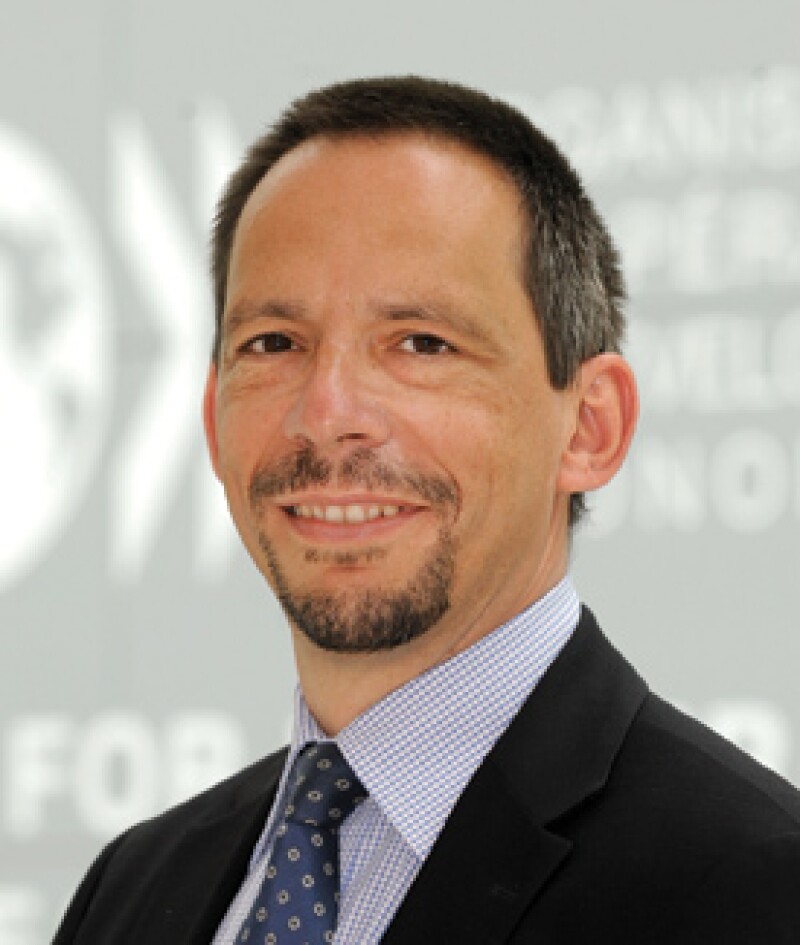
|
The introduction of international guidelines on VAT/GST is one of the stand-out tax developments of the year, and rightly cements Piet Battiau's place on this list. "It's a quite historic achievement of the OECD, together with its member countries," he says. "It's something to be proud of, and it's also quite exciting."
"We're now close to finalising the complete set, and we've now developed the public consultation draft dealing with the B2C consumer trading versus intangibles."
The past year for Battiau and his team has been a marathon of public consultations, regional fora and workshops, as well as the second global forum on VAT in Tokyo, as they try to make sure that the guidelines will be reasonable, effective and applicable to all types of economies and businesses.
The global forum on VAT had exactly 100 delegates, including around 85 countries as well as regional and international organisations and development banks such as the African Development Bank.
"We need to make sure that we understand the perspectives of all of the 160 countries that have a VAT, so that at least they have the chance to provide us with their input and their views. It's very labour intensive but it works pretty well," says the Belgian.
While the OECD does not have observer status of the EU, Battiau was keen to emphasise the amount of work which crosses over between the two organisations, as well as the IMF and the World Bank.
"What we will be promoting in the B2C space – so the area of B2C services and intangibles – is very much in line with the EU's 2015 changes, but the proposed scope is a lot broader," he says.
"The EU is looking at broadcasting, telecoms and e-services, whereas we are looking at cross-border remote services more generally, which then triggers discussion in the EU whereby the EU will start looking at whether they can expand the scope of their MOSS regime."
Overall, Battiau says that the mood in his unit was very positive, and effusively praised the work rate, togetherness and teamwork that has been exhibited in the past 12 months.
"This year has been really historic in what we've been able to achieve and that was really the result of teamwork within the secretariat but also we've done a lot of work with government experts, Working Party Nine and also the business community."
He says countries have long been convinced of the necessity and usefulness of developing a global standard on the VAT treatment of international trade, but were held back by doubts over whether such a plan could ever be possible.
Now that those doubts have been allayed, the progress in the past six months to a year has been particularly strong.
"Over the past few months we've achieved a final agreement on the guidelines of the treaty on the B2B trade and we've achieved agreement on the public consultation draft of the B2C," says the Belgian.
"We're close to finalising a really comprehensive global framework for the VAT treatment of trading sources and intangibles and it's actually a huge thing, we're really proud of that."
The Global Tax 50 2014 |
||
|---|---|---|
| Gold tier (ranked in order of influence) 1. Jean-Claude Juncker 2. Pascal Saint-Amans 3. Donato Raponi 4. ICIJ 5. Jacob Lew 6. George Osborne 7. Jun Wang 8. Inverting pharmaceuticals 9. Rished Bade 10. Will Morris Silver tier (in alphabetic order) Joaquín Almunia • Apple • Justice Patrick Boyle • CTPA • Joe Hockey • IMF • Arun Jaitley • Marius Kohl • Tizhong Liao • Kosie Louw • Pierre Moscovici • Michael Noonan • Wolfgang Schäuble • Algirdas Šemeta • Robert Stack Bronze tier (in alphabetic order) Shinzo Abe • Alberto Arenas • Piet Battiau • Monica Bhatia • Bitcoin • Bono • Warren Buffett • ECJ Translators • Eurodad • Hungarian protestors • Indian Special Investigation Team (SIT) • Chris Jordan • Armando Lara Yaffar • McKesson • Patrick Odier • OECD printing facilities • Pier Carlo Padoan • Mariano Rajoy • Najib Razak • Alex Salmond • Skandia • Tax Justice Network • Edward Troup • Margrethe Vestager • Heinz Zourek |
||









